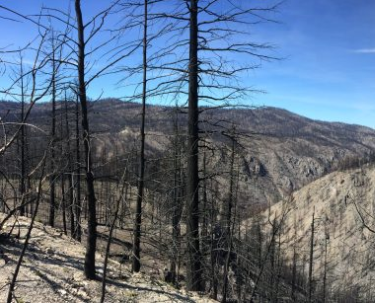From the University of Washington:
“The 2014 Carlton Complex wildfire in north central Washington was the largest contiguous fire in state history. In just a single day, flames spread over 160,000 acres of forest and rangeland and ultimately burned more than 250,000 acres in the midst of a particularly hot, dry summer.
In the first major study following the devastating Carlton Complex fire, researchers from the University of Washington and U.S. Forest Service found that previous tree thinning and prescribed burns helped forests survive the fire. The study, published Feb. 22 in the journal Ecological Applications, shows that even in extreme wildfires, reducing built-up fuels such as small trees and shrubs pays off.”

